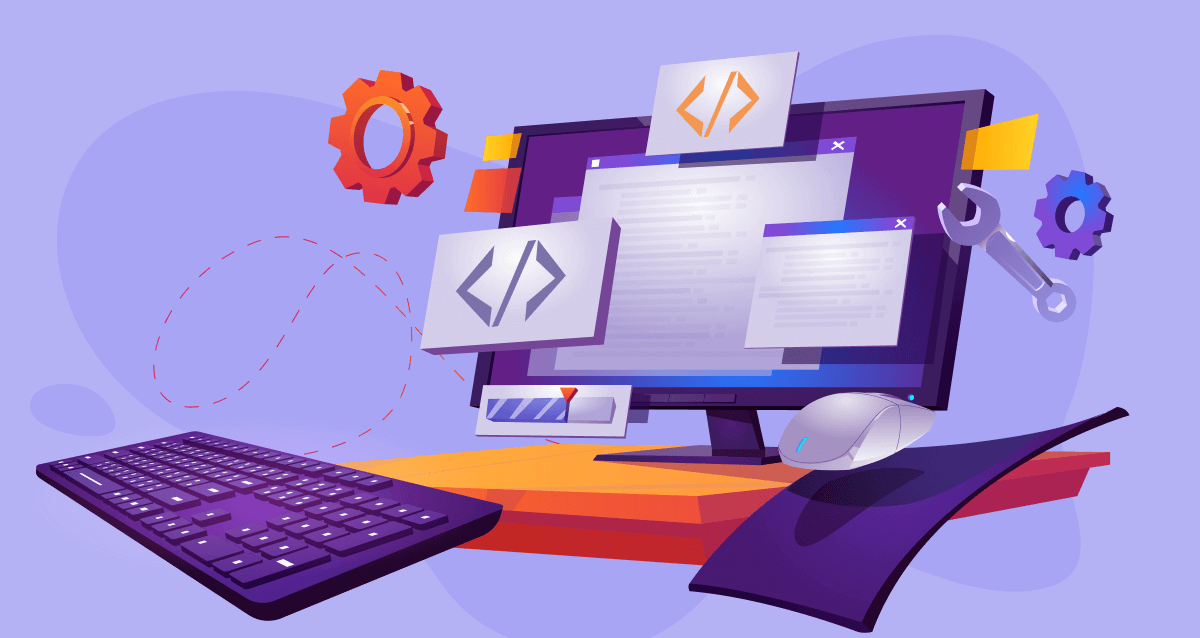Table of Contents
Building a professional website for your business is a critical step in establishing your online presence. With the rapid digitalization of industries worldwide, having a well-structured and visually appealing website is no longer optional, it’s a necessity.
But how do you ensure that your website reflects your brand’s vision and serves its intended purpose effectively? The answer lies in choosing the right website development services. With so many options available, making the right choice can feel overwhelming. However, a strategic approach can help simplify this process and ensure you make the best decision for your business.
Why Your Choice of Web Development Agency Matters
Your website is often the first point of contact between your business and potential customers. It acts as a virtual storefront, giving visitors a glimpse into your brand, products, and values. A professional website does more than just look good, it builds trust, improves user experience, and ultimately drives conversions.
Think about this: would you spend time browsing an online store with poor navigation, slow loading speeds, and unappealing visuals? Probably not. The right web development agency can prevent such issues, delivering a website that not only attracts users but keeps them engaged.
Choosing the wrong agency, on the other hand, can result in wasted resources, subpar results, and unnecessary frustration. That’s why it’s crucial to choose the best web development agency.
Step 1: Define Your Goals and Requirements
The first and most important step is to clearly define what you need from your website. This includes understanding the purpose of the site, the audience it will serve, and the features it must include.
Key Questions to Ask Yourself:
- Are you creating an e-commerce platform, a portfolio site, or a corporate website?
- What actions do you want visitors to take (e.g., make a purchase, fill out a form, read a blog)?
- Are there specific functionalities you require, such as live chat, payment integration, or booking systems?
For example, if your goal is to increase online sales by 30% over the next year, prioritize agencies with a strong track record in developing e-commerce solutions. Having a clear vision not only helps you communicate effectively with potential agencies but also ensures they understand your business needs.
Step 2: Explore the Benefits of IT Outsourcing
Outsourcing your web development needs to a specialized IT Outsourcing company can be a cost-effective and efficient solution. These companies are equipped with experienced professionals, advanced tools, and streamlined processes to deliver high-quality results.
Advantages of Outsourcing:
- Cost-Effective Solutions: Instead of hiring and training an in-house team, outsourcing lets you pay for only what you need.
- Access to Expertise: IT companies have teams of skilled developers, designers, and project managers.
- Faster Turnaround: Experienced teams can complete projects more quickly than building an in-house setup.
For example, if you’re in the retail industry and want to launch an online store, an IT outsourcing company familiar with Shopify or WooCommerce can deliver a fully functional e-commerce site tailored to your customers’ needs.
Step 3: Ask for Recommendations
Start your search by reaching out to people in your network. Recommendations from friends, colleagues, or other business owners can provide valuable insights into an agency’s performance.
What to Ask When Seeking Referrals:
- Did the agency deliver on time and within budget?
- Was the final result aligned with expectations?
- How was the communication and collaboration process?
For instance, if a colleague recently revamped their website and is satisfied with the results, that agency might be worth considering. Referrals can save you time and provide firsthand feedback on an agency’s capabilities.
Step 4: Dive Into Online Reviews and Ratings
In today’s digital age, online reviews are a treasure trove of information. Platforms like Clutch, Google Reviews, and Trustpilot offer honest feedback from previous clients.
How to Analyze Reviews:
- Look for consistent praise or complaints in the reviews.
- Focus on specific details, such as adherence to deadlines, quality of design, or responsiveness.
- Beware of agencies with overwhelmingly positive reviews that sound generic—they could be fabricated.
For example, if multiple clients highlight an agency’s ability to resolve issues quickly, that’s a strong indicator of reliability.
Step 5: Review Their Portfolio
A portfolio is a visual representation of an agency’s work and capabilities. It gives you a clear idea of their design style, technical expertise, and ability to handle projects similar to yours.
What to Look For in a Portfolio:
- Websites that match your industry or niche.
- User-friendly and visually appealing designs.
- Case studies or success stories that showcase measurable results.
For example, if you’re in the hospitality industry, look for agencies that have created hotel booking websites with seamless navigation and attractive layouts.
Step 6: Assess Their Technical Expertise
While a website’s aesthetics are important, its functionality and performance are equally critical. An agency with strong technical expertise ensures your site is fast, secure, and scalable.
Key Questions to Ask Agencies:
- What technologies do you use (e.g., WordPress, React, Laravel)?
- How do you ensure website security and data protection?
- Will the website be optimized for mobile devices?
For instance, if your target audience primarily uses mobile phones, the agency should prioritize responsive design and mobile optimization.
Step 7: Prioritize Communication and Collaboration
Effective communication is the cornerstone of a successful partnership. During initial consultations, evaluate how well the agency listens to your ideas and provides feedback.
Signs of a Good Communication Partner:
- They ask relevant questions to understand your goals.
- They offer suggestions to improve your ideas.
- They provide regular updates throughout the project.
For example, if an agency suggests integrating a chatbot or adding dynamic content to improve user engagement, it shows they’re proactive and invested in your project’s success.
Step 8: Understand Their Pricing and Budget
While cost is an important factor, it shouldn’t be the sole determinant. Instead of looking for the cheapest option, focus on the agency that offers the best value for your money.
Tips for Budgeting:
- Request a detailed breakdown of costs.
- Clarify whether post-launch support is included.
- Be wary of hidden fees.
For example, an agency that charges slightly more but includes ongoing maintenance and updates can save you money in the long run.
Step 9: Ensure Post-Launch Support
A website is not a one-time project; it requires regular updates, security patches, and performance monitoring. Choose an agency that offers reliable post-launch support to ensure your site runs smoothly after it goes live.
Questions to Ask About Support:
- How quickly do you respond to technical issues?
- Do you offer training on website management?
- Are updates and maintenance included in the package?
For instance, if your e-commerce site experiences a sudden downtime, the agency’s support team should be able to resolve the issue promptly.
Step 10: Trust Your Instincts
At the end of the day, your gut feeling matters. After evaluating all the factors, choose the agency that feels right for your business. If they’ve shown enthusiasm, demonstrated expertise, and aligned with your vision, you’re likely on the right track.
Case Study: Transforming Business with the Right Web Development Agency
Let’s take an example of a small business that wanted to expand its online presence. They chose a web development agency after following the steps outlined above. The result? A fully optimized e-commerce platform that doubled their online sales within 6 months.
This success story highlights the importance of thorough research and choosing the right agency.
Conclusion
Choosing the best web development agency is a crucial decision that can significantly impact your business’s growth. By defining your goals, seeking recommendations, reviewing portfolios, and assessing technical expertise, you can make an informed choice.
Remember, a great website isn’t just about aesthetics—it’s about creating a seamless user experience, building trust, and driving results.
Ready to start your digital journey? Contact The Outsource Company for expert web development solutions tailored to your needs!








Recent Comments